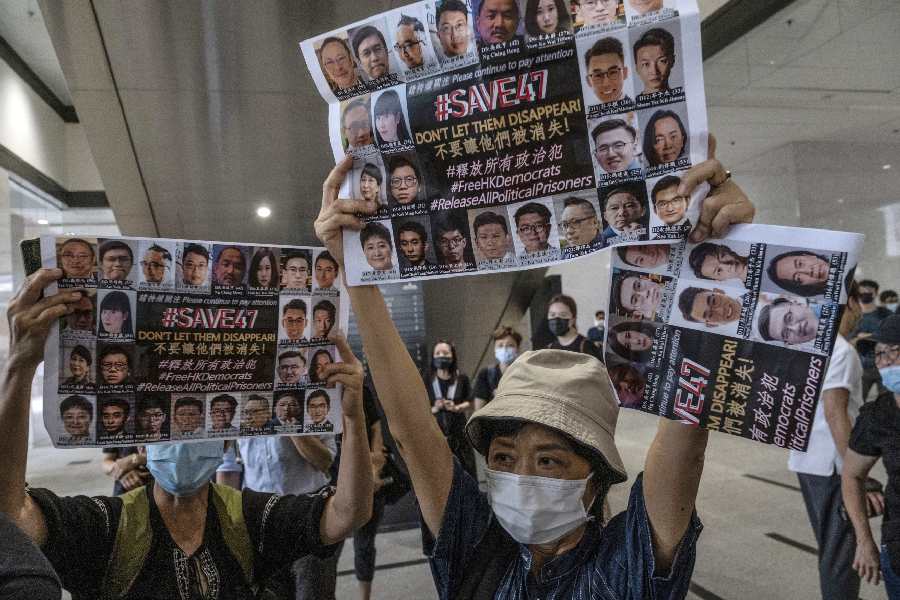Dozens of Hong Kong’s most well-known democracy activists and leaders now face prison sentences, in some cases for perhaps as long as life, after a court issued a verdict Thursday in the city’s largest national security trial.
Their offence: holding a primary election to improve their chances in citywide polls.
Authorities accused 47 pro-democracy figures, including Benny Tai, a former law professor, and Joshua Wong, a protest leader and founder of a student group, of conspiracy to commit subversion. Thirty-one of those defendants have since pleaded guilty.
On Thursday, judges picked by Hong Kong’s Beijing-backed leader convicted 14 of the remaining activists and acquitted two others.
The convictions show how authorities have used the sweeping powers of a national security law imposed by Beijing to quash political dissent in the Chinese territory. The punishments that are expected to follow in the coming weeks or months would effectively turn the vanguard of the city’s opposition, a hallmark of its once-vibrant political scene, into a generation of political prisoners.
Some are former lawmakers who joined politics after Hong Kong was returned to Chinese rule by the British in 1997. Others are activists and legislators who have advocated self-determination for Hong Kong with more confrontational tactics. Several, including Wong, who rose to fame as a teenage activist, were among the students leading large street occupations in 2014 for the right to vote.
Most of the defendants have spent at least the last three years in detention before and during the 118-day trial.
“The message from the authorities is clear: Any opposition activism, even the moderate kind, will no longer be tolerated,” said Ho-fung Hung, an expert on Hong Kong politics at Johns Hopkins University.
The pro-democracy activists have said they were merely defending the rights of Hong Kong residents in the face of Beijing’s tightening control over the city. Public alarm over shrinking freedoms in Hong Kong had set off enormous, at times violent, protests in 2019 and early 2020, mounting the greatest challenge to Chinese authority since 1989.
In response, China imposed a national security law on Hong Kong in 2020, handing authorities a powerful tool to round up critics like the 47 people on trial, including Tai, the law professor who had been a leading strategist for the pro-democracy camp, and Claudia Mo, a former lawmaker and veteran campaigner.
The New York Times News Service










